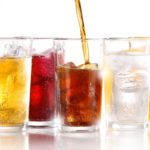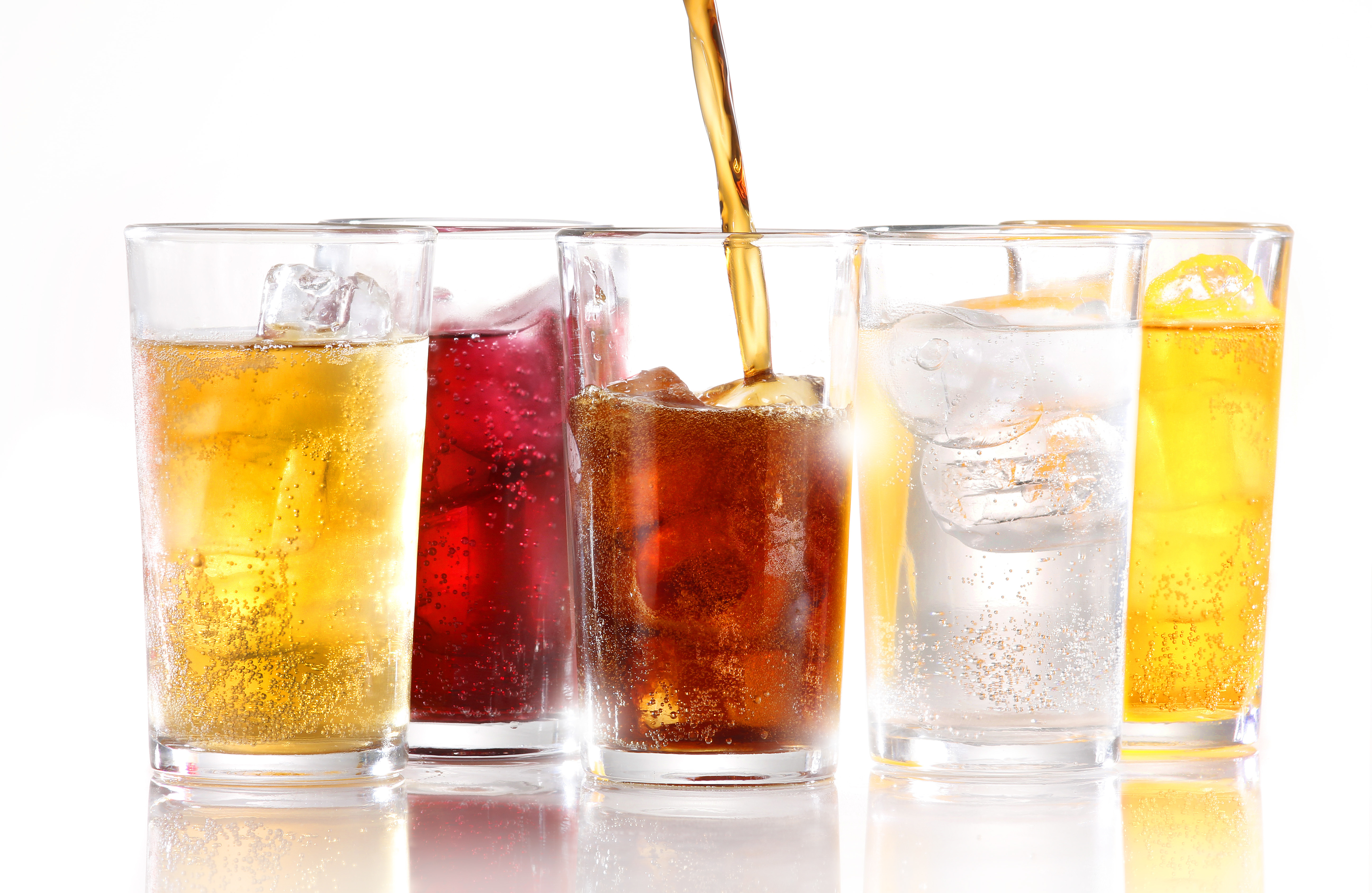Sugary drinks are getting a lot of attention lately for the role they play in dental decay.
Let’s look at some facts.
Dental decay is caused by the presence of 4 things. It requires a susceptible tooth surface, dental plaque – which builds up not long after brushing teeth- around 20-30 minutes, sugar – especially sticky sugars, and beverages (bacteria in plaque produce acid from the sugar which “eats” into the tooth causing a “hole”), and enough time for damage to the tooth to occur.
There are factors that can moderate a person’s susceptibility to tooth decay.
- Volume of saliva- a dry mouth can occur even in healthy people due to different times of the day, dehydration, exercise, medications and whether saliva is stimulated by eating. If you have a dry mouth, you are more susceptible to tooth decay and erosion.
- Ability of saliva to neutralise acid- food, drink, stomach acid and other factors affect the pH of saliva. Saliva pH is normally 6.7-7.4, but when bacteria metabolises sugar, the pH drops. If it drops below 5.5, dental enamel dissolves.
The longer the pH is below 5.5 the more enamel is lost. - Oral hygiene- removing plaque effectively and often reduces the number of bacteria that cause dental decay
- Remineralising factors- such as fluoride, replace the calcium that is dissolved out of the tooth due to bacteria and acids. This allows tooth enamel to repair early damage and prevent tooth decay.
- Xylitol- reduces decay causing bacteria levels in the mouth, raises the pH of the saliva and promotes saliva flow to increase the mouth’s ability to neutralise acids. The American Dental Association recommends a minimum 8g of xylitol per day to reduce dental decay.
- Diet- many foods protect teeth from decay, and many promote decay. Ensuring that decay causing food and drink are minimised and good oral care is practiced, the body’s defences can often tolerate the odd sugar and acidic attack. But when sugar and acids tip the scales frequently, permanent damage is done.
- Vitamins, etc- Vitamin D, grape-seed extract, green tea extract, and erythritol have been shown to reduce the risk of dental decay by reducing plaque sticking to teeth.
Why is this all important?
So if dental decay is caused and moderated by so many factors, how did sugary drinks get such a bad reputation?The World Health Organisation recommends a maximum of 25g (6 teaspoons) of sugar per day from all food and drink sources. When the average can of soft drink contains 38g (9 teaspoons), just one can of soft drink per day is enough to tip the oral health scales in favour of dental decay. Many sugary drinks are also acidic (and carbonated which further reduces the pH) which increases the risk of dental decay. Many people also consume more than one can of soft drink per day, further increasing the risk because the effects of sugar and acid are more difficult to neutralise.
What about low sugar and sugar-free soft drinks?
Sugar-free drinks are acidic, dissolving tooth enamel causing dental damage (erosion). Studies showed no significant difference between the amount of damage caused by sugary and sugar-free drinks on teeth. So while sugar-free drinks contain less calories, they are not a better option from a dental perspective.
What does all this mean?
Is dental decay a sugar problem or not? Sugar certainly does cause dental decay when all the other factors exist (plaque, susceptible tooth surface and enough time), but it’s not just sugar that causes dental problems, it’s acidity too. Even many bottled waters (and juices, lemon, apple cider vinegar) are acidic, and in the pH range that can cause dental erosion.
Why is Swirlit different?
Understanding the complexity of oral health and the impact on general health, the beverage choice issue is contentious. No-one wants to be told what to eat and drink, but it’s important to be informed, because our choices today will impact our future health.
As a dentist, it’s my responsibility to inform my patients of healthy options. When it comes to beverage choices, the healthiest options might seem lacking in variety: tap water, (unsweetened) coffee and tea.
Swirlit is all about healthy drinks for healthy mouths.
So knowing all the factors that contribute to oral health, an oral health drink had to satisfy certain criteria: sugar free, pH neutral, an ingredient to prevent dental decay (xylitol) and other special ingredients (vitamins, minerals and extracts) to protect the mouth, and help neutralise acids that cause damage. But satisfying all these criteria isn’t enough! It has to be tasty too! Swirlit’s first range delivers with a variety of tea bases and natural ingredients like cinnamon, rose, peach and blueberry. Every ingredient is chosen for their oral health properties.
The fact that Swirlit makes your mouth feel clean and freshens breath is an added bonus!
So what should we do about sugary drinks?
Make conscious choices about what you drink. Sugar will do damage, acidity will do damage. It will take time, but it happens. The risk can be reduced by great oral care, and neutralising the effects of sugar and acid. Ultimately our choices will have consequences, so choose wisely!
———————————————————-
Another note on pH:
This recent study showed that even though drinks are in the mouth for a few seconds, the drop in pH they cause lasted for 13 minutes (in the case of a popular carbonated soft drink with a pH of 2.04). The damage occurs long after the drink has left the mouth. If a drink is consumed quickly, the pH drop will be shorter, but if a sugary acidic drink is sipped, the acidity persists. This leads to an increased risk of dental decay until the acid is neutralised.
#swirlit #healthydrinks #beverage #sugar #sugarfree #pH #pHneutral #acid #xylitol #oralhealth #dental #dentaldecay #erosion #dentist #sugarydrinks #health #mouth #bottledwater

Are these the only culprits?


